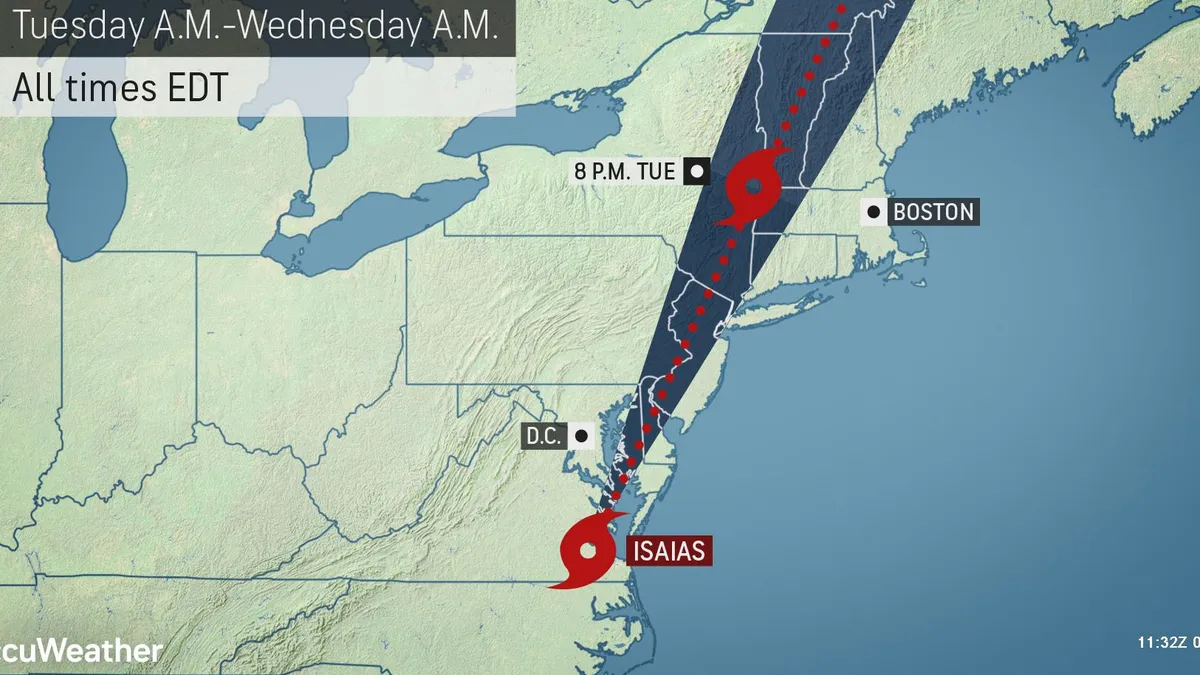Dive Brief:
- North Carolina ports delayed opening gates Tuesday after Tropical Storm Isaias made landfall as a hurricane in North Carolina Monday night. The storm will move up the East Coast to Canada Tuesday, bringing winds up to 70 mph to many East Coast states.
- The U.S. Coast Guard declared port condition Zulu for the Ports of Baltimore and Delaware Bay, prohibiting all vessel traffic as of Tuesday morning. Vessel traffic remains restricted at the Port of Wilmington, North Carolina, since Monday. Florida and South Carolina ports have reopened after previous vessel restrictions.
- "Since the storm is a fast mover, it is expected that some [port] operations will likely resume on Wednesday or Thursday," said Jonathan Porter, AccuWeather meteorologist and VP and general manager of AccuWeather For Business.
Dive Insight:
Several ports remain on high alert, and Isaias' speed will also create issues for road freight throughout Tuesday.
The National Hurricane Center (NHC) said strong winds and tornadoes are possible across Eastern Maryland, northern New Jersey and southern New York Tuesday. A tropical storm warning is in effect for eastern waterways up to Nantucket, Massachusetts. Urban flash flooding is possible, warned NHC, naming Philadelphia.
"Only gradual weakening is anticipated while Isaias moves north-northeastward near the mid-Atlantic coast today," reads the NHC's 11 a.m. alert.
AccuWeather predicts winds up to 65 mph along the I-95 corridor. "These winds can create the risk to overturn truck trailers and railcars, especially if they are unloaded," Porter said.
Major East Coast artery I-95 is home to 11 of of the American Transportation Research Institute's (ATRI) top 100 trucking bottlenecks. "Transportation companies have been working with us for several days now to decide when they need to shut down certain parts of their network or pull shipments ahead to avoid having operations ongoing when dangerous gusty winds are expected," Porter said.
The direction of the wind increases the risk for downed trees over road and rail tracks, according to Porter.














